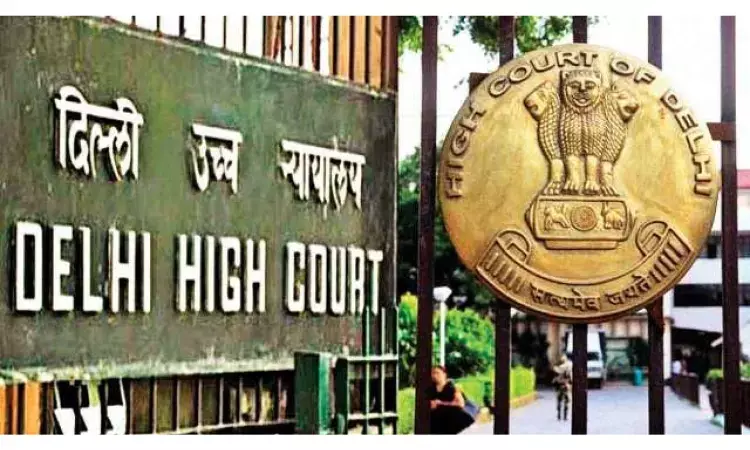- Home
- Medical news & Guidelines
- Anesthesiology
- Cardiology and CTVS
- Critical Care
- Dentistry
- Dermatology
- Diabetes and Endocrinology
- ENT
- Gastroenterology
- Medicine
- Nephrology
- Neurology
- Obstretics-Gynaecology
- Oncology
- Ophthalmology
- Orthopaedics
- Pediatrics-Neonatology
- Psychiatry
- Pulmonology
- Radiology
- Surgery
- Urology
- Laboratory Medicine
- Diet
- Nursing
- Paramedical
- Physiotherapy
- Health news
- Fact Check
- Bone Health Fact Check
- Brain Health Fact Check
- Cancer Related Fact Check
- Child Care Fact Check
- Dental and oral health fact check
- Diabetes and metabolic health fact check
- Diet and Nutrition Fact Check
- Eye and ENT Care Fact Check
- Fitness fact check
- Gut health fact check
- Heart health fact check
- Kidney health fact check
- Medical education fact check
- Men's health fact check
- Respiratory fact check
- Skin and hair care fact check
- Vaccine and Immunization fact check
- Women's health fact check
- AYUSH
- State News
- Andaman and Nicobar Islands
- Andhra Pradesh
- Arunachal Pradesh
- Assam
- Bihar
- Chandigarh
- Chattisgarh
- Dadra and Nagar Haveli
- Daman and Diu
- Delhi
- Goa
- Gujarat
- Haryana
- Himachal Pradesh
- Jammu & Kashmir
- Jharkhand
- Karnataka
- Kerala
- Ladakh
- Lakshadweep
- Madhya Pradesh
- Maharashtra
- Manipur
- Meghalaya
- Mizoram
- Nagaland
- Odisha
- Puducherry
- Punjab
- Rajasthan
- Sikkim
- Tamil Nadu
- Telangana
- Tripura
- Uttar Pradesh
- Uttrakhand
- West Bengal
- Medical Education
- Industry
Treatment of rare diseases in kids cannot be deferred due to lack of long-term clinical trials: HC

New Delhi: The Delhi High Court has noted that treatment of children suffering from rare diseases "would not merit" being deferred on the ground that long term clinical trial studies are not available or that adequate evidentiary material does not exist.
Justice Yashwant Varma was deliberating a series of petitions related to children suffering from rare diseases like Duchenne Muscular Dystrophy (DMD), Hunter's syndrome.
The pleas sought directions to provide them free of cost treatment owing to the reason that the medical treatment involved was very expensive.
The court had earlier asked All India Institute of Medical Sciences (AIIMS) to examine medical records of children suffering from Duchenne Muscular Dystrophy (DMD) in order to frame a recommendation of whether commencement of treatment is likely to yield any results.
As per National Institutes of Health, the US's medical research agency, a genetic disorder, DMD affects the muscles, leading to muscle wasting that gets worse over time. DMD occurs primarily among males, though in rare cases may affect females.
In its report submitted on May 30, the AIIMS expert committee had told the court that that administration of the drug among petitioners in five cases may help in "attenuating the decline in cardiac and respiratory as well as ambulatory functions".
Further, the AIIMS committee had said that there is no evidence to suggest that the drug would stop the disease from progressing, and that long-term outcomes are not known.
The recommendations of the AIIMS Expert Committee were placed on Court's record. Admitting a dearth of authoritative research material in respect of such illnesses, the court observe;
"That, however, should not detract from the right of patients to undergo the treatment options which are currently available and are being administered to similar patients across the globe even if they be viewed as experimental therapies".
It further noted,
"Although the Committee has further gone on to observe that there is presently no evidence which may suggest that the administration of the drug would stop the disease from progressing and that long term outcomes are unknown, the Court is of the opinion that treatment to the aforenoted patients would not merit being deferred on the ground that long terms clinical trial studies are not available or that adequate evidentiary material does not exist."
After the court was told that financial support for patients suffering from rare diseases has been increased from Rs 20 lakh to Rs 50 lakh, the court told AIIMS to forward its proposal to the Union Health Ministry for commencement of treatment to children suffering from rare diseases. It noted;
"In view of the aforesaid and the communication of 25 May 2022, let AIIMS forward its proposal for commencement of treatment to the petitioners aforenoted to the competent officer in the Ministry of Health and Family Welfare, Government of India."
The court also directed the Department of Biotechnology to explore and file a response disclosing "other generic norms of treatment that may be under development and may warrant consideration in respect of children suffering from rare diseases in this batch of writ petitions".
The matter will be next heard on August 5.
To view official order, click on the link below:
Farhat Nasim joined Medical Dialogue an Editor for the Business Section in 2017. She Covers all the updates in the Pharmaceutical field, Policy, Insurance, Business Healthcare, Medical News, Health News, Pharma News, Healthcare and Investment. She is a graduate of St.Xavier’s College Ranchi. She can be contacted at editorial@medicaldialogues.in Contact no. 011-43720751


